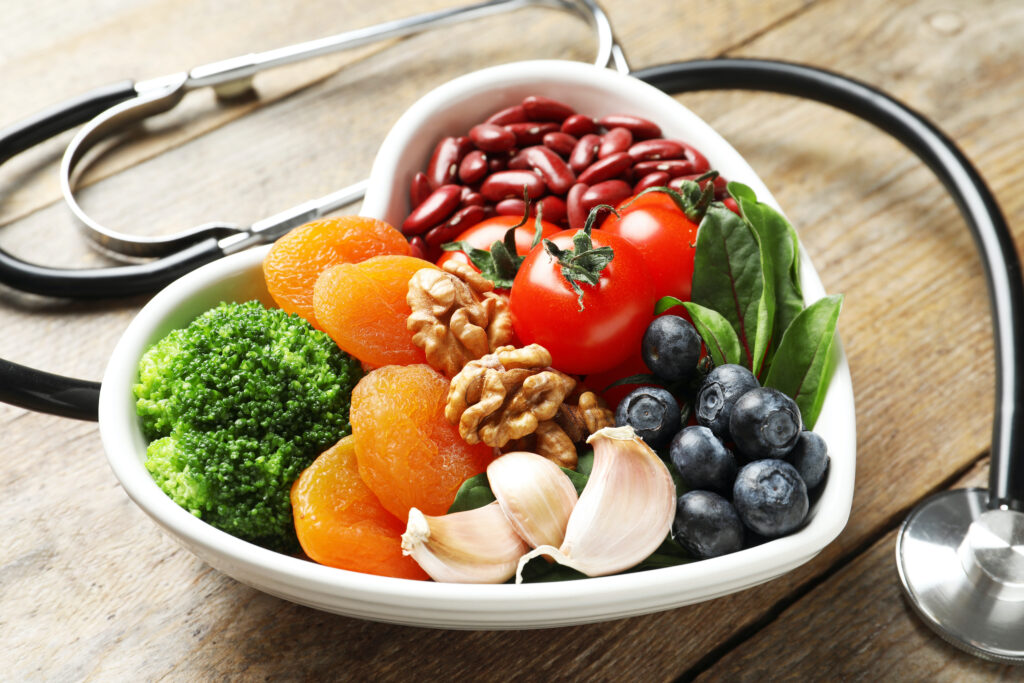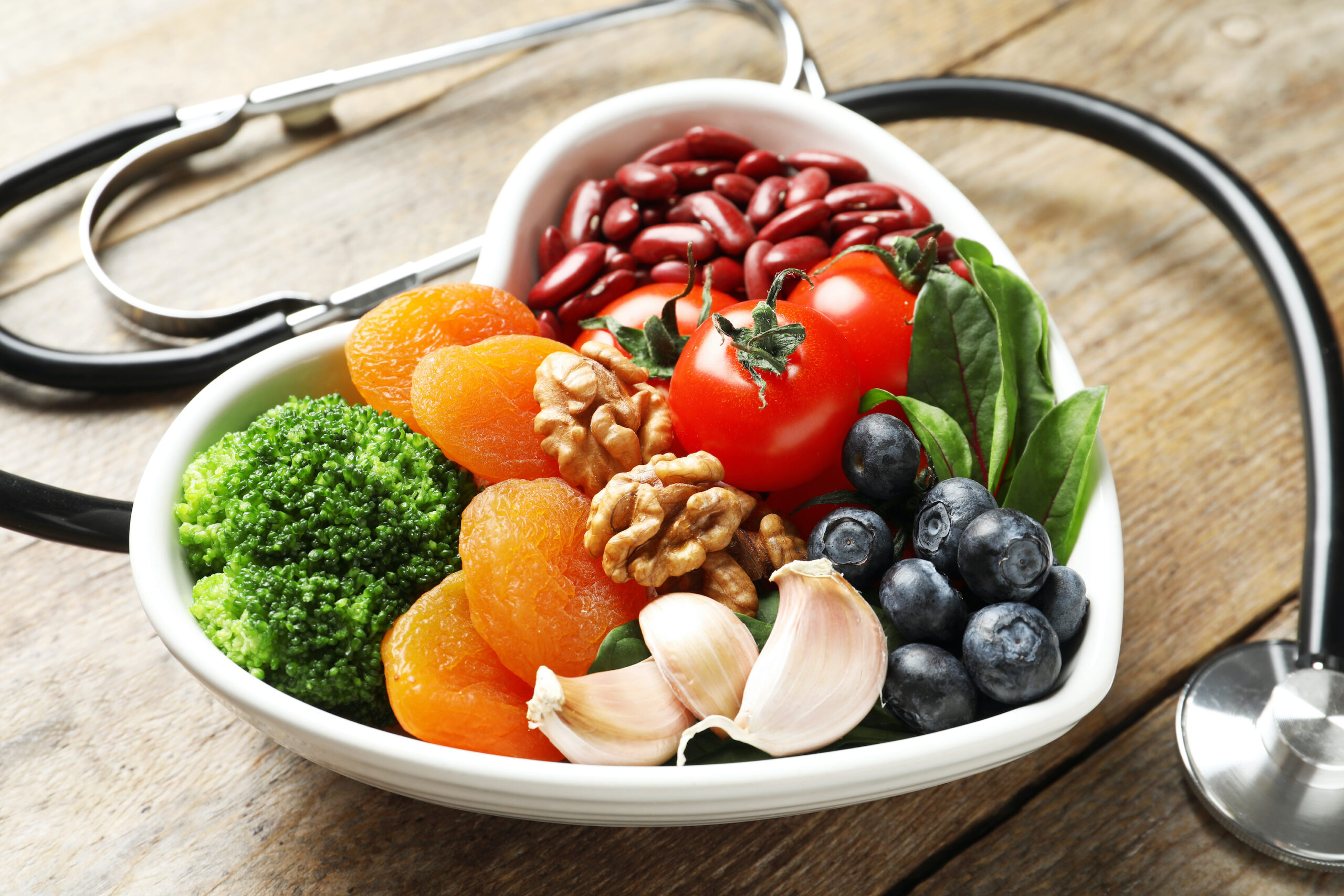
The Role of Diet in Managing High Blood Pressure

High blood pressure, or hypertension, is a common health issue that affects millions of people worldwide. While medication can be necessary to manage this condition, dietary choices play a crucial role in controlling blood pressure levels. This guide offers insights on how a heart-healthy diet can impact blood pressure and includes practical tips for making beneficial dietary changes.
Understanding High Blood Pressure
High blood pressure occurs when the force of blood pushing against the walls of your arteries is consistently too high. Over time, this can lead to serious health problems such as heart disease, stroke, and kidney damage. For more information on what constitutes high blood pressure, check out American Heart Association: Understanding Blood Pressure Readings1.
How Diet Affects Blood Pressure
Sodium and Blood Pressure
One of the primary dietary factors influencing blood pressure is sodium intake. High sodium levels can cause the body to retain water, which increases blood volume and pressure. Reducing sodium in your diet can significantly lower blood pressure levels.
For guidelines on reducing sodium intake, visit CDC: Sodium and Your Health2.
Potassium and Blood Pressure
Potassium helps balance the amount of sodium in your cells, maintaining proper function and lowering blood pressure. Foods rich in potassium include bananas, oranges, potatoes, and spinach.
Learn more about potassium-rich foods at Harvard T.H. Chan School of Public Health: The Nutrition Source3.
The DASH Diet
The Dietary Approaches to Stop Hypertension (DASH) diet is specifically designed to help manage blood pressure. This diet emphasizes fruits, vegetables, whole grains, lean proteins, and low-fat dairy while limiting red meat, sodium, and added sugars.
For detailed information on the DASH diet, visit NHLBI: DASH Eating Plan4.
Heart-Healthy Eating Habits
1. Increase Fruit and Vegetable Intake
Fruits and vegetables are high in fiber, vitamins, and minerals that benefit heart health. Aim to fill half your plate with these foods at each meal.
For more tips on incorporating fruits and vegetables into your diet, see ChooseMyPlate.gov: Fruits and Vegetables5.
2. Opt for Whole Grains
Whole grains like brown rice, oats, and whole wheat bread contain more nutrients and fiber than refined grains. These can help lower blood pressure and improve overall cardiovascular health.
Find out more about the benefits of whole grains at Whole Grains Council: Health Benefits6.
3. Choose Lean Proteins
Incorporate lean sources of protein such as chicken, fish, beans, and legumes into your diet. These options are lower in saturated fat and can help maintain healthy blood pressure levels.
For more on lean protein sources, visit Mayo Clinic: Protein and Heart Health7.
4. Limit Processed Foods
Processed foods often contain high levels of sodium, unhealthy fats, and added sugars, all of which can contribute to high blood pressure. Focus on whole, unprocessed foods whenever possible.
5. Monitor Alcohol Consumption
While moderate alcohol consumption may have some health benefits, excessive drinking can raise blood pressure. It’s best to limit alcohol intake to no more than one drink per day for women and two for men.
For guidelines on alcohol consumption, refer to CDC: Alcohol and Public Health8.
Practical Tips for Heart-Healthy Eating
- Plan Your Meals: Create a weekly meal plan that includes plenty of fruits, vegetables, lean proteins, and whole grains.
- Read Labels: Check nutrition labels for sodium, saturated fat, and sugar content to make healthier choices.
- Cook at Home: Preparing meals at home allows you to control the ingredients and reduce sodium and unhealthy fats.
- Stay Hydrated: Drink plenty of water throughout the day to support overall health and hydrate your body.
- Snack Smart: Choose heart-healthy snacks like nuts, seeds, fruit, and yogurt instead of processed snacks.
Conclusion
Managing high blood pressure through diet is a powerful and effective strategy. By making intentional dietary choices and adopting heart-healthy eating habits, you can positively impact your blood pressure and overall well-being. Remember, small changes can lead to significant results over time.
To schedule and appointment with top our cardiologists at Sam Houston Heart and Vascular visit
www.samhoustonheart.com or call 832-241-2001
Footnotes
- American Heart Association: Understanding Blood Pressure Readings ↩
- CDC: Sodium and Your Health ↩
- Harvard T.H. Chan School of Public Health: The Nutrition Source ↩
- NHLBI: DASH Eating Plan ↩
- ChooseMyPlate.gov: Fruits and Vegetables ↩
- Whole Grains Council: Health Benefits ↩
- Mayo Clinic: Protein and Heart Health ↩
- CDC: Alcohol and Public Health ↩

